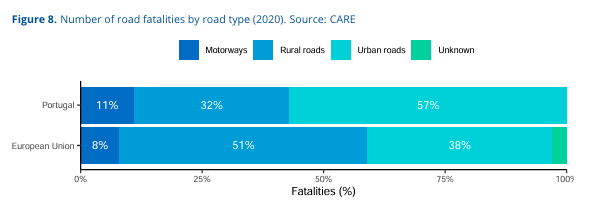Bike theft decriminalised? #183
See it, say it, sorted (as long as there isn't more than 2 hours of CCTV).
This week, there’s a top-flight footballer, road safety changemakers in southern Europe and a new cycle street in Cambridge. Don’t say I don’t give you variety.
BIG STORIES FOR CYCLING ADVOCACY
BIKE THEFT AT STATIONS DECRIMINALISED? Various news outlets have reported that British Transport Police (BTP) won’t act on bike theft if said bike has been left for more than two hours - leading to accusations they have decriminalised the problem. On BBC Radio 4’s Today Programme BTP’s Ian Drummond-Smith clarified that the restriction is on reviewing two hours of CCTV footage. If there’s intelligence relating to a narrower period, if someone texted 61016, i.e., they could look at that period. Drummond-Smith says within two years AI software may be sophisticated enough to analyse footage for police (it is already, but don’t expect public sector systems to be upgraded as quickly), but for now limited human resources are deployed strategically.
THE PEOPLE TRYING TO CHANGE LISBON’S STREETS. Portugal’s roads are more dangerous than the EU average, with 52 fatalities per million inhabitants, vs 42 in Europe generally. Added to that, its cities are disproportionately lethal. For the latest Streets Ahead podcast Laura Laker and I talked to some of the people trying to make change, from the city to local government to advocacy work. Laura also wrote a Substack post about the trip. Lisbon is a great city - it only needs leadership and a few good policies to cut road danger and congestion.
ENGLAND’S FIRST CYCLE STREET. Adams Road is one of Cambridge’s busiest for cyclists, the BBC reports, with 3,000 cyclists in peak hours. The Greater Cambridge Partnership has decided to give cyclists priority, which means drivers give way to those pedalling. Users report a stressful experience in the currently crowded space, and the idea is to reduce collisions with drivers and their car doors, making it safer for children to cycle and scoot. This treatment is common in cycle-friendly countries, and Cardiff already has one on Taff Embankment, but it’s the first for England. Work starts next week.
WITH POWER COMES RESPONSIBILITY. Hector Bellerin is a Spanish professional footballer playing for La Liga club Real Betis - not your usual cycling advocate. Unusually, Bellerin chooses to cycle to training in Seville, and uses his platform to promote a sustainable lifestyle. That includes reducing consumption and raising awareness of the need to tackle climate change. He credits former manager at Arsenal, Arsene Wenger, for some of this ethos. Bellerin told the BBC “It would be easier to take a cab. I know I’m privileged, but it’s more of a revindication. We need greener cities, with fewer cars.”
LONDON HITS CLEAN AIR TARGETS 184 YEARS EARLY. ULEZ may have been a tough political choice for Sir Sadiq Khan but the impact on air pollution is surely a vindication. New data from DEFRA shows that London met the legal requirements for nitrogen dioxide (NO2) pollution in 2024 for the first time. For context, in 2019 Kings College London predicted it would take 193 years to bring London within legal limits. Birmingham, Liverpool and Manchester (weirdly, its ‘non-charging voluntary clean air zone’ hasn’t worked), meanwhile, are still sadly exceeding those limits.
OTHER HEADLINES
£1M FOR ACTIVE TRAVEL INNOVATION. A new innovation fund will award grants of up to £100,000 for successful bids to enable more people to walk, wheel or cycle. Examples given include “community projects that help under-represented groups make more active travel choices, partnerships between councils and local communities or businesses to promote sustainable travel, or digital tools that improve safety and accessibility”.
INTERESTING GRAPH OF THE WEEK: Portugal’s disproportionately high urban road fatality rate, against the European average. Source.
ACTIVE TRAVEL WORD OF THE WEEK:
Cycle Street. I’ll defer to The Ranty Highwayman’s definition, as: “A residential road for motorised traffic that forms part of the main cycle network or bicycle highway, and which is identifiable due to its design and layout, but has a limited volume of car traffic and that car traffic is subordinate to the bicycle traffic.”
Until next time,
Adam
Adam Tranter
CEO, Fusion & Founder, #BikeIsBest
This newsletter is brought to you by Fusion, the agency for movers, specialising in communications and public affairs for active travel and mobility.






